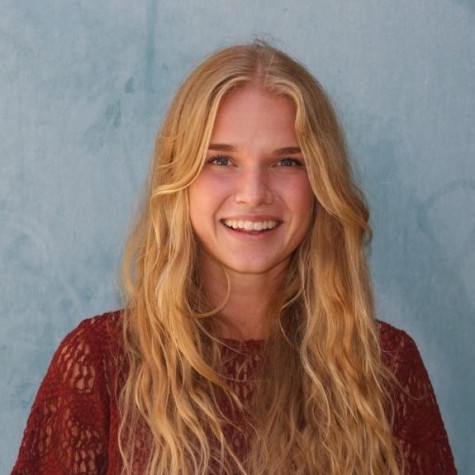Aiming high for the basketball hoop might just translate into students aiming higher in their academics as well.
Although most people attend college to prepare for university and future employment, some professors like to offer their students a break from a purely academic routine.
On Tuesday and Thursday mornings, history and ethnic studies professor Roger Bowerman can usually be found in the main gym, where he spends half an hour “shooting some hoops” with his students before the 9:10 class begins.
“Basketball is this great combination of the physical and mental,” said Bowerman.
For Bowerman, the main purpose for these basketball sessions is to make personal connections that he thinks can make a difference in his and his students’ lives, such as learning that working with others is an essential skill. Because basketball is a team sport, it helps them realize that winning is not a singular pursuit.
“One of my goals with these students is [for them to learn that] the more you rely on others, the better you become, and for me translates into life as well as basketball,” he said.
Bowerman first began playing basketball with his students 10 years ago and it soon became part of his routine. He has learned that what occurs on the court affects what happens in the classroom.
For example, it breaks a barrier between him and the students and allows them to see the person behind the teacher.
“If you get to know someone, the reason you try hard is because you do not want to let them down,” he said. “When you are in a relationship, it means equal responsibility.”
Bowerman believes that non-academic activities are opportunities for interaction and engagement to occur, and basketball is just one of the many platforms. He is convinced that there are ways to engage in conversations and activities everywhere you go.
“Everyone jumps in an elevator and looks at the numbers,” he said. “You just have to look the other way sometimes.”
A similar approach to learning is adopted by Michael Harnett, an English professor and director of the Scholars program. Through researching motivation, he has found different ways of engaging students in non-academic activities as well.
“People can really get the most out of what they are doing if they are motivated,” he said. “I can encourage that and also help them be autonomous.”
Every Friday, between 8 and 10 a.m., Harnett and his scholar students step onto the court. He also tries to arrange a monthly hike for his English 101 classes.
“I have had students say ‘I think you are doing some kind of life lesson with this right?’ and if that is a good thing, then sure,” he said.
Harnett describes himself as a “a teacher teaching in a teachable moment.” He sees exercise as an obligation for himself and since he is a people person, his motto is “we might as well all go. The more the merrier.”
Harnett feels that spending all of this extra time with his students will help prepare them for larger universities, where “the standards are much higher and the help is much less.”
According to the 2014 Gallup-Purdue Index Report, a study of more than 30,000 college graduates, the support from a single teacher can make a difference in a student’s level of engagement and college experience as a whole. Graduates who felt that they had support are nearly three times as likely to thrive than those who did not feel the same way.
Harnett has come to a similar conclusion himself.
“I think there is a connection between a sense of well-being and how your motivation is affected and maybe how your concentration is affected as well,” he said.
Bowerman’s aim as a teacher is to provide his students with the extra support that he himself received.
During his time at UCLA, Bowerman met a teacher who cared about his well-being and told him to shape up, and that is what he did. Bowerman hopes to be that difference for his students as well.
“It is about making yourself available to being that person for somebody,” he said.
Bowerman himself has had a positive influence over his students’ lives. One day, when a car accident occurred on his street, Bowerman rushed out to help. The police officer at the scene turned out to be one of his old students who told him that he had his current job because of Bowerman’s class. He recalled the officer telling him that Bowerman made him think of education in a different way, which helped him take life more seriously.
Both Bowerman and Harnett believe that playing basketball and interacting with their students helps them see their teachers as human beings.
“Many teachers act like they have never been to college or never had any kinds of problems, troubles or challenges, and that is so not true,” said Harnett. “I was just like everybody here. I even had hair!”


